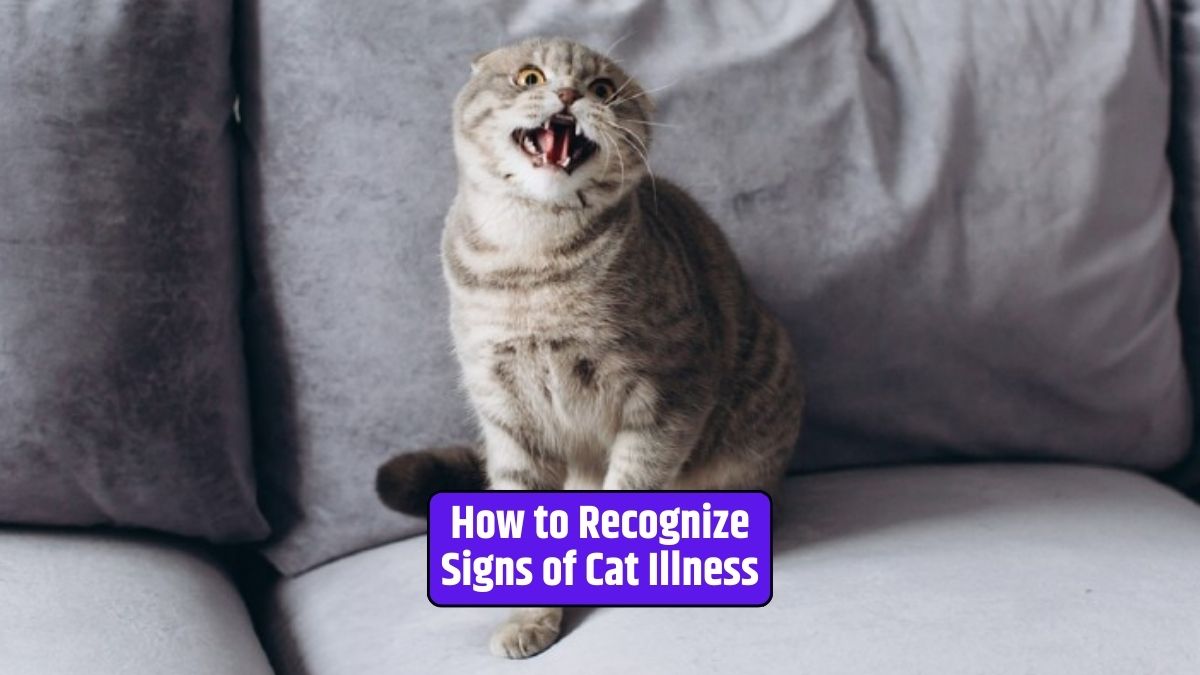Cats, like humans and other animals, can fall ill from various causes, including infections, injuries, or underlying health conditions.
While cats are masters at hiding discomfort, they do exhibit signs that alert you to their distress. Recognizing these signs promptly can make a significant difference in the prognosis and treatment of your beloved pet.
Common Signs
Understanding the common signs of illness in cats is the first step in ensuring their well-being. Here are some telltale signs to watch for:
1. Eating Habits
A sudden decrease or increase in appetite can be indicative of an underlying issue. Cats that refuse to eat or overeat may have health concerns.
2. Vomiting
Occasional vomiting may not be concerning, but frequent or persistent vomiting and diarrhea can signal gastrointestinal problems.
3. Litter Box Behavior
Any change in urination or defecation habits, such as straining, blood in the urine, or inappropriate elimination, could be a sign of illness.
4. Lethargy
Cats are typically active and playful. If your cat becomes lethargic, weak, or less interested in play, it may be unwell.
5. Coughing
Respiratory symptoms like coughing and sneezing can indicate infections or allergies.
6. Changes in Coat
Dull or matted fur, bald patches, or skin sores can indicate skin issues or allergies.
7. Weight Loss or Gain
Unexplained weight loss or gain may be a sign of an underlying health problem.
8. Behavioral Changes
Sudden changes in behavior, such as increased aggression, hiding, or excessive vocalization, may indicate discomfort or stress.
Veterinary Care
While not every symptom requires an immediate vet visit, some signs should prompt you to seek professional care without delay. These include:
- Difficulty breathing
- Seizures
- Loss of consciousness
- Severe injury or bleeding
- Inability to urinate or defecate
- Sudden paralysis
Prevention
Prevention is often the best medicine. Ensure your cat receives regular check-ups with the vet and stays up to date on vaccinations. A balanced diet, regular exercise, and a stress-free environment can contribute to your cat’s overall health.
Conclusion
Recognizing signs of illness in your cat is a vital skill for every cat owner. By paying attention to changes in behavior, appetite, and physical appearance, you can ensure your feline friend receives timely and appropriate care when needed.
FAQs
Are there specific signs that cats commonly hide when they’re unwell?
Yes, cats often hide signs of weakness or pain. Commonly hidden symptoms include dental issues, arthritis, and early stages of kidney disease.
Can a cat’s age influence the signs of illness it displays?
Yes, older cats may show different signs of illness than younger ones. Conditions like hyperthyroidism and kidney disease are more common in senior cats.
Should I be concerned if my cat vomits occasionally?
Occasional vomiting may not be concerning, but if it’s frequent, persistent, or accompanied by other symptoms, it’s advisable to consult your vet.
How can I help my cat stay healthy and prevent illness?
A balanced diet, regular exercise, stress reduction, and preventive vet care, including vaccinations, are key to maintaining your cat’s health.
What is the role of vaccinations in preventing illness in cats?
Vaccinations help protect cats from various contagious diseases, reducing the risk of infection and severe illness.









